History is filled with turning points that forever change the course of human events. One such momentous event occurred on May 29, 1453, when Constantinople—the great, majestic capital of the Byzantine Empire—fell to the forces of the Ottoman Empire. This event was not merely the end of an era; it was the beginning of a cascade of changes that reshaped politics, trade, art, and culture across continents. The lessons contained in this dramatic transformation over five centuries ago can inspire each one of us today to embrace change, overcome adversity, and find new beginnings even amid seemingly insurmountable challenges.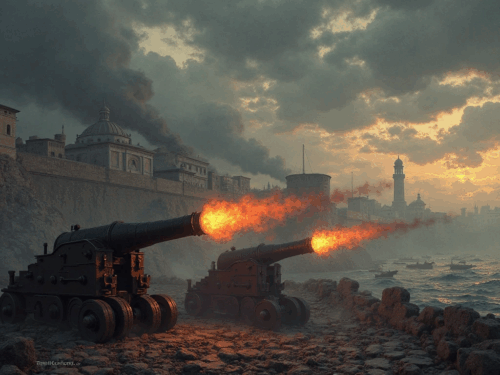
In the early morning of May 29, 1453, after weeks of intense siege and relentless assault, the great walls of Constantinople that had long withstood invaders were breached by an innovative enemy. Led by Sultan Mehmed II, the Ottoman forces brought with them not only numbers but also the revolutionary use of artillery—massive cannons that shattered ancient fortifications. This blend of determination, strategic innovation, and the unyielding drive to adapt in the face of overwhelming odds led to the collapse of a city that had stood as a beacon of power and culture for over a millennium.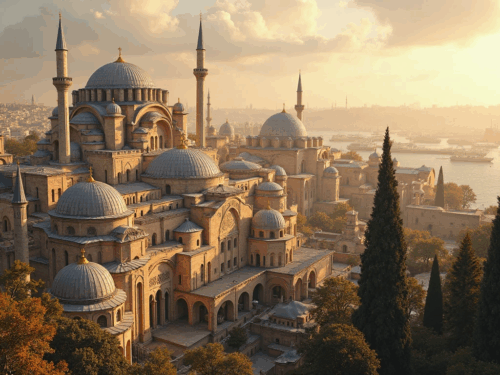
## The Historical Landscape of a Bygone Era
For centuries, Constantinople had been the glittering jewel of the Eastern world—a city where the legacies of Rome, Greece, and Christianity intermingled with vibrant trade and a rich cultural tapestry. Its vast network of commerce, intricate bureaucracy, and profound influence on art and religion made it a thriving hub for centuries. Yet, as time passed and new military technologies emerged, the once impregnable walls of the city began to falter in the hands of determined adversaries.
At the heart of the Byzantine Empire’s strength was a unique blend of tradition and steadfast guardianship of ancient knowledge, yet it also bore the weight of centuries-old structures and warfare tactics that were increasingly rendered obsolete in the face of modern military technology. As the Ottoman Empire ascended under the visionary leadership of Mehmed II, it brought with it new strategies, innovative siege techniques, and colossal cannons that could batter walls that had repelled countless foes. The siege of Constantinople thus became a dramatic clash between an ancient way of life and a bold, forward-thinking military revolution.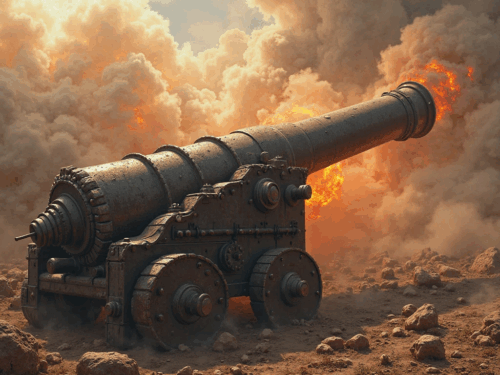
In the weeks leading up to the fall, the city’s defenders—aware of its storied past and the collective hopes of an entire civilization—fought with valor despite overwhelming odds. Their determination, while admirable, could not counterbalance an enemy that had embraced change and used it as the engine for progress. When the walls finally fell, the event symbolized the inevitable progression of time: even the mightiest bastions can succumb to the winds of transformation, making way for a future that is shaped by those willing to innovate and adapt.
## Turning Catastrophe into Opportunity
Standing amidst the ruins of a fallen empire, one might feel the weight of tragedy and the despair that accompanies the loss of something seemingly unbreakable. However, this pivotal moment in history also holds a profound message for each of us. The fall of Constantinople reminds us that sometimes, what appears to be an insurmountable collapse is, in fact, the precursor to a new era of creativity and growth. Rather than lamenting the end of an old order, the people who emerged from that dark time were later instrumental in igniting the Renaissance—a period marked by an explosion of art, science, and renewed intellectual passion.
Just as disintegration of the old world paved the way for an unprecedented cultural and intellectual rebirth in Europe, so too can the demise of an outdated mindset in our personal lives lead to a period of transformation and self-improvement. When we encounter setbacks or face radical changes in our own “empires”—be it a failed project, a shattered dream, or a profound life challenge—it is vital to recognize that these endings create space for new beginnings.
Change, although often feared, is a necessary catalyst for growth. The story of Constantinople is a powerful reminder that clinging to outdated methods or resisting inevitable change can lead to stagnation. In our personal journeys, embracing change means having the courage to let go of the familiar in order to make way for personal reinvention. Every great accomplishment in life begins with the acceptance that sometimes, in order to rise, we must first let go.
## Lessons in Resilience and Adaptability
At the core of the dramatic siege of Constantinople was not only technological innovation but also an unwavering spirit of determination. The defenders of the city, despite knowing that the odds were stacked against them, demonstrated a fierce commitment to their heritage and identity. Yet, even as they resisted, they could not forestall the forces of change marching at the gates. This blend of persistence in the face of adversity and the acceptance of limitations offers a crucial lesson for anyone facing personal obstacles today.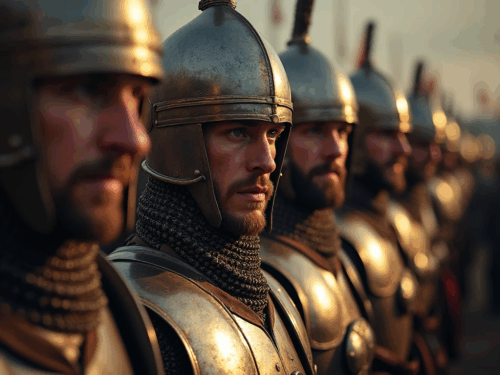
In our modern lives, we all encounter moments when the systems we have built—whether in our careers, relationships, or personal beliefs—feel as though they are crumbling. When setbacks occur, the natural impulse might be to resist change or to despair over what has been lost. However, the fate of Constantinople teaches us that such moments, as painful as they might seem, are also opportunities to rebuild with renewed insight and energy. It is in those very moments of vulnerability that we can muster the strength to adapt, learn, and emerge stronger than before.
Resilience is the art of not only withstanding hardship but using it to fuel future progress. The Ottoman Empire did not simply “win” by demolishing an ancient wall—it heralded a new age by integrating new methods and expanding its influence far beyond what was previously imagined. In our lives, resilience means embracing the discomfort of change and using it as a stepping stone to explore new horizons, whether that involves acquiring new skills, reinventing our careers, or redefining our relationships.
## Embracing Modern Innovation as a Path to Growth
One of the defining features of the siege of Constantinople was the Ottomans’ commitment to technological progress. The introduction of massive cannons, a technology that had not been applied with such ferocity before, demonstrates the impact of innovation in altering the status quo. In today’s fast-paced world, technology and innovation continue to be at the forefront of change, providing us with unparalleled tools to overcome obstacles.
For individuals, this historical insight has a profound message: welcome technology and new ideas as allies in your journey toward personal growth. Whether it’s adopting digital tools to enhance productivity, harnessing the power of online resources for education, or using innovative strategies to pursue entrepreneurial dreams, modern advancements can offer you the edge needed to transcend challenges. The key is to remain flexible and open-minded, understanding that clinging to the old ways may leave you vulnerable, while embracing innovation can set the foundation for a vibrant new chapter in your life.
Much like the Ottomans, when we choose to adopt the innovations at our disposal, we are not betraying our past—we are building upon it. Every new technique learned, every tool embraced, is an investment in yourself. The same spirit that helped an upstart empire reshape the world nearly six centuries ago can help you revolutionize your own life. It is about recognizing that progress is a moving target and that staying on the cutting edge often requires stepping out of your comfort zone.
## Transforming Setbacks into Stepping Stones
When faced with adversity, it is instinctive to view setbacks as failures. However, the story of Constantinople challenges us to see such moments differently. The fall of a seemingly invincible city was not the end of hope or progress; it was the spark that ignited a new era of enlightenment and exploration. Similarly, every personal setback is not a verdict of defeat but an invitation to reassess, learn, and grow.
Imagine your life as an empire. There will be times when your carefully constructed walls—your routines, your established beliefs, your secure systems—are challenged by forces beyond your control. Whether it’s in the form of unexpected career shifts, personal losses, or unforeseen changes in your environment, these moments test the strength of your “empire.” The essential question is not whether you can avoid these attacks, but rather how you respond after the breach occurs.
In the aftermath of a setback, the process of rebuilding can be a transformative journey. Begin by taking an honest inventory of what has been lost and what lessons have been learned. Reflect on the strategies that will allow you to rebuild stronger and more resilient than ever. Like a phoenix rising from the ashes, this reconstruction process is your opportunity to redefine your purpose and ambitions. With each brick you lay in rebuilding your personal empire, remember that every setback is a precursor to a reinvigorated beginning.
## Seeking Renewal in the Face of Adversity
The tale of Constantinople is ultimately a story of rebirth as much as it is a story of decline. After its fall, the dispersal of scholars from the city into Western Europe played a pivotal role in igniting the Renaissance—a cultural revolution that reshaped art, science, and philosophy. This migration of knowledge and the ensuing period of renewal is a testament to the transformative power of embracing change head-on. It teaches us that even in the depths of loss, there exists the potential for a brilliant new dawn.
In our personal lives, renewal is within reach whenever we decide to see adversity as the beginning of something transformative. The collapse of an old system should not be viewed as an absolute failure; rather, it is an invitation to reevaluate what is truly essential and to chart a new course based on a deeper and more refined understanding of ourselves. This period of renewal can be as enlightening as it is challenging—the pain of loss can eventually give way to a resurgence of creativity, wisdom, and inner strength.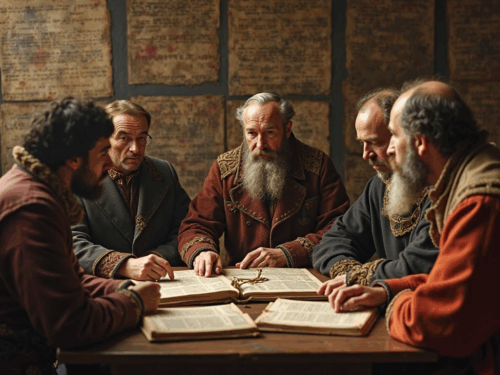
To seek renewal, start small. Identify one area of your life where change feels necessary—be it a career move, a new relationship, or a shift in perspective—and commit to taking one positive step today. Surround yourself with supportive individuals who encourage innovation and who understand that change, though uncomfortable, is an integral part of progress. Cultivate hobbies and interests that challenge your limits and nurture your intellect. Much like the scholars who carried the flame of knowledge forward from the ruins of Constantinople, gather the fragments of your past experiences and piece them together into a mosaic of hope and possibility.
## Personal Action Steps for Embracing Transformation
The lessons drawn from the fall of Constantinople are not just historical anecdotes; they are practical guides for personal transformation. Consider these actionable steps to help you harness the power of change and rebuild your “empire” stronger than before:
- **Accept Impermanence:** Recognize that change is an inescapable part of life. Just as even the most fortified walls can be breached, understand that all conditions—both good and bad—are transient. Accepting impermanence helps you develop a mindset that is open to evolution.
- **Embrace New Ideas:** Whether it’s learning a new skill, adopting modern technology, or challenging the status quo in your personal beliefs, seek out new methods and strategies that can help you adapt and thrive. Innovation often comes when we dare to step outside our comfort zones.
- **Reflect on Setbacks:** Instead of dwelling on past failures, view them as opportunities to learn. Reflect on what each setback has taught you about your habits, strengths, and weaknesses. Use these insights to develop a new, more resilient strategy for moving forward.
- **Cultivate Resilience:** Build a strong support system and nurture habits that foster mental and physical strength. Journaling, mindfulness, and seeking mentorship are all powerful tools to help you remain resilient during trying times.
- **Rebuild with Intention:** When you begin to reconstruct aspects of your life that have been shaken, do so deliberately. Identify your core values and redesign your plans with those guiding principles in mind. This process is similar to how new leaders emerged from the fall of Constantinople, carrying forward a refined vision for the future.
- **Celebrate Transformation:** Recognize that every moment of change, no matter how challenging, is a victory. Celebrate your courage in facing adversity and applaud the progress you make, no matter how incremental it may seem.
## Drawing Inspiration from the Ashes
The legacy of Constantinople’s fall is not solely about destruction—it is equally about the rich, new beginnings that followed. When the old order crumbled, it allowed for the flowering of human creativity and innovation that defined the Renaissance. Artists, scientists, and thinkers emerged from the shadows of defeat, channeling their experiences into works that would inspire generations to come.
In your own life, the ashes of past difficulties can serve as the fertile soil for a fresh start. Embrace your experiences—both the triumphs and the failures—as necessary parts of your growth. Realize that setbacks do not define you; they refine you. Like the great scholars and pioneers who rebuilt their world after Constantinople’s fall, you too can use your life’s trials as a catalyst for rejuvenation and reinvention.
It might feel overwhelming when change disrupts every familiar corner of your existence. In those moments, remember that no state of being is permanent. Whether you are facing the end of a career, the challenges of personal loss, or simply the slow erosion of an old worldview, let these moments propel you toward a future rich with potential. Draw upon the lessons of history and understand that each ending is but the seed of a new beginning.
## The Enduring Power of Transformation
The story of Constantinople’s transformation from an impregnable bastion to a fallen city, and finally to a launchpad for a cultural renaissance, is a universal narrative of rebirth. It teaches us that while we may not be able to control every external event, we possess the power to shape our response. Your journey through hardships can lead to a profound transformation that not only restores your spirit but also empowers you to pursue your dreams with renewed vigor.
The magnitude of change in 1453 reshaped borders, economies, and entire cultures. But at its core, it was a story about people, their perseverance, and their immutable capacity for renewal. Today, in a world that is marked by rapid technological advances, shifting economic landscapes, and evolving social norms, the same spirit of courage and adaptability is indispensable. It is a call to transform adversity into opportunity, to see beyond the moment of crisis, and to build a future that is informed by the lessons of the past and energized by the promise of tomorrow.
The fall of Constantinople stands as a monumental reminder that we are never truly defeated unless we choose to stop fighting for our own reinvention. Just as an empire can fall and then rise again stronger, your own setbacks can be the foundation upon which you build a richer, more purposeful life. Embrace the transformative power of change, and allow the richness of history to light your path forward.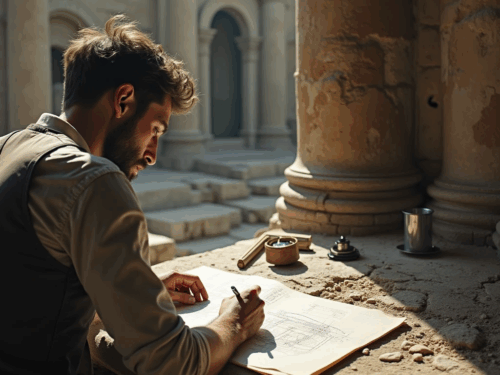
## A Call to Personal Renewal
If there is one undeniable truth to be taken from the story of Constantinople, it is this: endings often mark the beginning of something profoundly new. Every time you stand at the precipice of loss, remember that what feels like the end of your world can be the moment when your most significant transformation begins. Every challenge you face carries within it the seed of renewal—a chance to reimagine your life, redefine your goals, and rebuild your inner empire.
Today, as you reflect on the lessons of a fallen empire, ask yourself: how can I use this moment of change to propel myself toward a better future? What old systems in my life no longer serve me, and how can I harness the inevitable force of change to build a new, stronger foundation? Use the fall of Constantinople as a metaphor for your own journey—a reminder that even the mightiest structures are meant to evolve, adapt, and eventually give way to growth.
You have the capacity to learn from every setback and to emerge more prepared and resilient than before. Embrace the uncertainty of life with the confidence that comes from knowing the transformative power of change. With each step you take toward rebuilding, celebrate not only your past struggles but also the promise of every new beginning. Stand tall in the face of adversity, and let the lessons of history be the wind beneath your wings as you soar toward a future filled with possibility.
## Conclusion
In the fall of Constantinople, we find a story that is as much about the indomitable human spirit as it is about the shifting tides of power. It is a story that teaches us that no matter how formidable the fortress may seem—be it an ancient city or the personal constructs we guard—change is the only constant, and within every ending lies the potential for renewal. Embrace your setbacks as stepping stones, welcome innovation as your ally, and allow every moment of adversity to fuel your own brilliant renaissance.
As you move forward in life, remember that your greatest transformation may lie just beyond the threshold of what you know. The legacy of a once-mighty empire that fell on May 29, 1453, is not one of defeat but of rebirth—a powerful reminder that from the ashes of loss can emerge a future filled with unimaginable promise. Let this history inspire you to be resilient, to continue evolving, and to never stop daring to rebuild your “empire” with newfound strength and wisdom.
Today, let the lessons of Constantinople guide you in your personal journey. Embrace change, innovate relentlessly, learn from your setbacks, and above all, believe that every fall is merely a prelude to a triumphant rise. May this story of historical transformation empower you to write your own narrative of resilience and renewed hope. The past may be distant, but its lessons are timeless—waiting for you to apply them and create a legacy of your own.
Step confidently into a future where challenges are not obstacles, but opportunities. Each moment of adversity gives you the raw material to forge a stronger, wiser, and more dynamic self—just as the fall of Constantinople paved the way for an age of enlightenment and artistic revival. Your journey awaits; let history be your guide, and the story of personal transformation become your own epic saga.
Remember, within every ending there is a beginning. Embrace your past, learn from it, and use its lessons to chart a course for a brighter, more resilient tomorrow. Your history, like the annals of great empires, is a tapestry of trials, triumphs, losses, and breakthroughs—each thread contributing to the unique masterpiece that is your life. Now is the time to turn those lessons into actions, to embark on a journey of renewal, and to rise splendidly from every fall.

